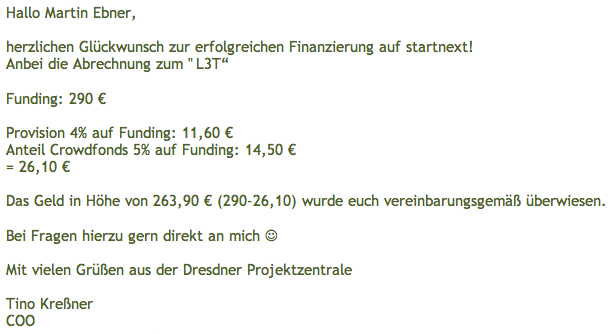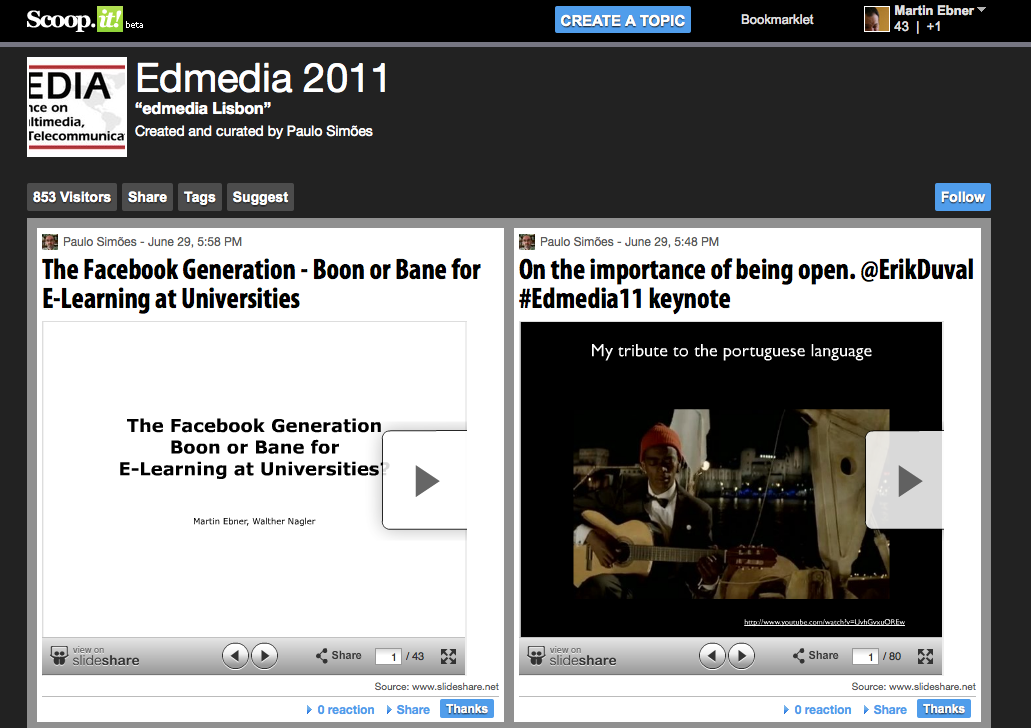Our publication on „First steps towards an integration of a Personal Learning Environment at university level“ for this year ICT 2011 conference is now online available as draft version. The slides have been already published here.
Abstract:
Personalization is seen as the key approach to handle the plethora of information in today’s knowledge-based society. It is expected that personalized teaching and learning will efficiently address learner needs. The education of the future will change as a result of the influence of Web 2.0 content typified by a steadily increasing supply of data. This means that the students of tomorrow will regularly have to deal with sharing and merging content from different sources. Therefore, mashup technology will become a very important lens by which to focus on individual learning needs and enable personalized access to particular information. The following paper describes the challenges of Personal Learning Environments at higher education institutions. In the first section, the concept of Personal Learning Environments is presented, while the second section discusses the new challenges that arise for learning with the help of Personal Learning Environments. The third section describes the technical background of Personal Learning Environments and the widget standard in general. In section four, a first prototype of a personal learning environment will be presented, which is integrated into the learning culture at the Technical University of Graz. A detailed description of the available widgets for the prototype, along with a first expert evaluation, is provided. Finally, the conclusion of the article consolidates the main points of the paper and present plans for future research together with the prospective developments.
First steps towards an integrated Personal Learning Environment at the university level
Klicken Sie auf den unteren Button, um den Inhalt von www.scribd.com zu laden.
Reference: Ebner, M., Schön, S., Taraghi, B., Drachsler, H., Tsang, P. (2011). First steps towards an integration of a Personal Learning Environment at university level. R. Kwan et al. (Eds.): ICT 2011, CCIS 177, pp. 22–36, 2011, Springer-Verlag Berlin Heidelberg 2011


